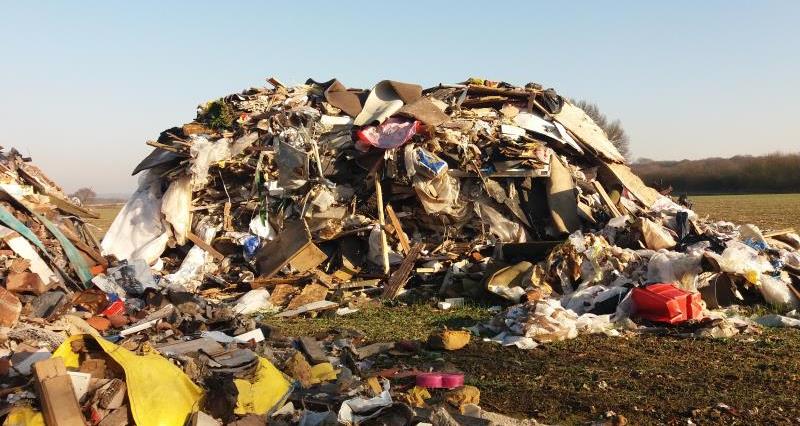The EA (Environment Agency) has published a government response and summary of the 426 responses it received for this consultation.
Although the NFU did not have a strong opinion on the change of terminology, only that it might give rise to confusion, the EA will simplify the current terminology around waste carriers, brokers and dealers to ‘waste controllers’ and ‘waste transporters’ and assign legal responsibility to these new terms:
- Transporters: those who are instructed by a controller to move waste between locations without input on the end destination and classification (for example, hauliers, contractors, delivery drivers).
- Controllers: those who organise waste collection, or its classification, transportation, end destination (for example, brokers, dealers, consultants, waste sites), or arrange the recovery or disposal of waste on behalf of others, and those who buy or sell waste. For avoidance of doubt, this includes those who do not take physical possession of the waste when performing those activities.
- Controller-transporters: those who organise waste collection, or its classification, transportation, end destination or arrange the recovery or disposal of waste on behalf of others, those who buy or sell waste and also collect and transport it (for example, waste sites with their own transporter, skip companies, waste collection companies).
The EA says this will effectively link responsibility for the waste to those taking decisions on the fate of that waste.
The NFU has secured various ‘wins’ in the following areas of the consultation:
Agricultural waste
The NFU strongly argued that farmers transporting their own agricultural waste should be able to operate under a registered exemption and not have to register for a permit. It is our view that the option to transport agricultural waste as part of the business’s activity should remain as a free to use option without adding more regulatory and costly burden to small businesses.
The EA has agreed with this and said that ‘Farmers transporting their own agricultural waste will only be required to operate under a registered exemption’. However, the EA has decided that companies transporting agricultural waste, or those that offer a take-back service for empty containers and unused product will be required to apply for a permit.
Advertising
The NFU welcomes the EA’s decision to require the permit number to be shown when advertising waste services (in printed media, digital media and social media), because this will help those such as the EA, householders and other legitimate producers of waste to check the permit status of a businesses.
It also provides transparency and much needed confidence to those seeking to use waste services especially when we see so much household waste being fly-tipping by third party rouge operators who undermine legitimate waste businesses.
Animal by-products
In our response, we NFU advised the EA that transport of ABPs (animal by-products) is already covered by the ABP regulations; requirements which are designed to ensure ABPs are suitably and safely handled to the satisfaction of Defra and the APHA (Animal Plant and Health Agency).
The EA has concluded that there is therefore no additional benefit from requiring this activity to be permitted and instead it will require a registered exemption.
Transition period for the introduction of competence requirements
The EA’s introduction of mandatory competence is a significant change for the industry, and both operators and training providers will need adequate time to prepare. The EA has announced a 12-month transition period. The NFU supported the option of a 12-month period over the three month, or six month period the EA also proposed in the consultation.
Raising awareness of the Duty of Care
The NFU called for changes to be accompanied by an awareness campaign that highlights to householders and businesses the responsibilities and the consequences of the new regime. In particular, the householder duty of care to aid the prevention of fly-tipped waste.
In its response, the EA said that the Duty of Care legislation and Code of Practice will be amended in due course to reflect the changes around these reforms and the introduction of a digital waste tracking service.
It will also consider the need for a wider awareness campaign aimed at the general public, to make it easier for them to meet their duty of care requirements. This will cover things such as making sure they check whether a business is permitted if required and that they know where contractors are taking their waste.
The NFU has also asked for a publicly accessible database for users to check the permit status of a waste business more easily. The EA did not acknowledge this ask in its consultation response, but it will also make it a permit condition for permit numbers to be readily accessible to the regulator or local authority upon the inspection of a vehicle.
